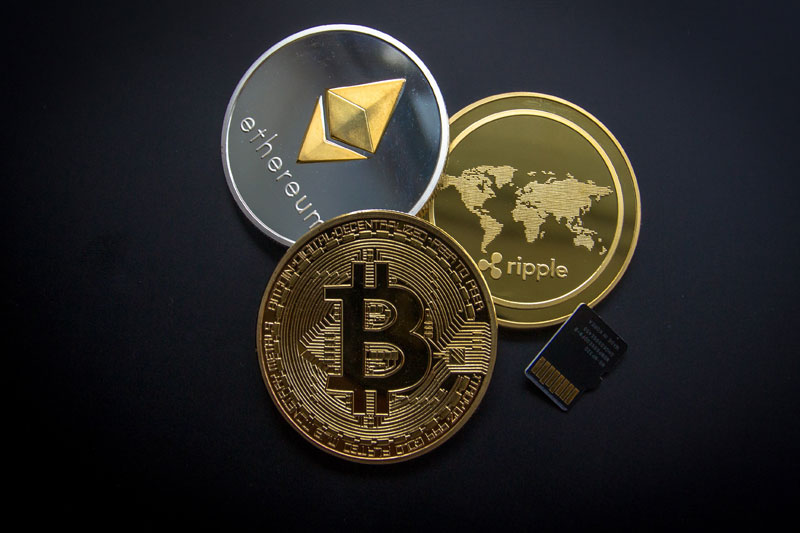Why Satoshi Nakamoto is smiling at BlackRock’s embrace of Bitcoin
The SEC’s recent decision to approve nearly a dozen bitcoin ETFs was hailed as a major win for crypto. But not by everyone. On X/Twitter, a disgruntled faction of the cryptocurrency community cried foul over the alleged heresy of a bitcoin product custodied and marketed by the likes of BlackRock. The most common objection seems to be that “bitcoin doesn’t need an ETF” and that using intermediaries to purchase it—particularly ones from Wall Street— perverts the ideal of decentralization.
On the more extreme end, people like self-described researcher “Chris Blec” went so far to as to suggest that BlackRock and others might conspire to alter bitcoin’s core features. And OG Bitcoiner Max Keiser warned of a scenario where the bitcoins held by ETFs get confiscated by the US government.
This outcry is misguided. A bitcoin ETF is a great thing for furthering the original mission of the bitcoin project, and it’s safe bet that Satoshi Nakamoto—wherever he is—is nodding happily at this new tool to acquire his creation.
Recall bitcoin is meant to be a type of peer-to-peer digital cash that can’t be usurped by the whims of any intermediary. And if bitcoin is meant to enable individuals to be their own bank, an ETF strengthens its case as a store of value. The way a store of value works is that you buy it with excess savings and sell it when you need to consume it at a later point. The way a censorship-resistant, seizure-resistant store of value works is that you buy it when you need the protection it affords you and sell it when you don’t. In other words, people willing to hold bitcoin without needing its raison d’etre render a valuable service to those who do need it.
I buy bitcoin largely because other people will accept it. If I were living in an authoritarian regime, I would prefer to buy bitcoin over the local currency because I know it has a global market outside of the capital controls destroying my wealth. Knowing there is a bitcoin market that caters to even the most straight-laced investors in the world’s largest capital market only strengthens that case.
Bitcoin was engineered for censorship resistance and portability, which means it can be taken anywhere in the world. Keeping bitcoin safe is a matter of keeping a string of characters a secret, one that could reside in your head if need be. It’s a sad sign of the times that this feature of bitcoin is becoming more important as capricious government policies leave more and more people “unbanked.” Even more sad is that the use cases for bitcoin have grown due to armed conflict and a mass of capital flight in recent years.
Bitcoin-holders have always rendered a service to bitcoin-needers. Over the last decade, companies like Coinbase and Kraken have made it easy to set up accounts on their exchanges to buy a bitcoin or a fraction of a bitcoin. It’s fair to wonder what the market is for bitcoin ETF buyers in 2024.
Under existing regulations, it’s much simpler for an ETF to be held in an IRA or a 401k than any type of crypto-token because the issuers of these assets are audited in a way that’s compatible with the requirements of modern financial services. Thus, ETFs can broaden the market by appealing to a different segment of potential consumers. What’s more, fewer bad experiences with security and liquidity for the average bitcoin owner mean better outcomes for the reputation of the industry. For years, journalists have breathlessly covered stories about lost fortunes made by users’ error (and come up with creative accounting methods to exaggerate their impact).
To put it another way, spot bitcoin ETFs help solve the last mile problem for cryptocurrencies. The cryptocurrency market has, to date, been saturated by ideologues and gamblers. The appearance of audited vehicles holding bitcoin creates more liquidity globally without alienating potential users by burdening them with esoterica that early ideologues (like me) readily tolerated. Instead of making a commitment to finding security solutions that usually resemble a Rube Goldberg machine, the marginally interested, crypto-curious consumer can now enjoy an easy entry into this grand experiment. Bitcoin may not need an ETF, but it certainly needs an alternative to safety deposit boxes and Ledger devices.
Average folks, not just the tech savvy, who are bitcoin-curious can now contribute to bitcoin’s liquidity by dipping their toe into the ETF pool. Ultimately, this should be celebrated by even bitcoin’s most old school believers – not to mention the people using it as a lifeline.
Kathleen Breitman is a cofounder of Tezos. The opinions expressed in Fortune.com commentary pieces are solely the views of their authors and do not necessarily reflect the opinions and beliefs of Fortune.


